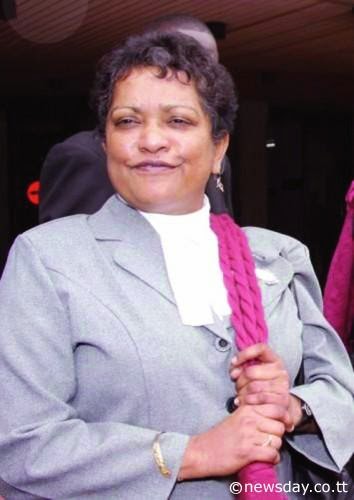Media For Rent, Press Freedom For Sale
The Caribbean Is One Nation.
Media For Rent, Press Freedom For Sale
By Sunity Maharaj
When self-proclaimed independent media houses get to the point of pre-empting their own news and selling their news air-time and audiences to political bidders we know that we have crossed a new line in the corruption of our institutions. Clearly, no cow is too sacred to be sold.
It takes deep pockets to buy out a three-hour block of air-time from five television stations and ten radio stations as the People’s Partnership did for its anniversary rally last Saturday. A casual calculation would put the cost of just air-time alone in the vicinity of $2 million with the lion’s share going to top-rated TV6 and CNC3.
Clearly, in this guava season of shifting demographics and rival social media, the buy-out offer was too sweet for the mainstream media to pass up, even for the once non-negotiable items of the News time slot.
It was only a matter of time that news audiences, acquired through the hard work of credible journalism, would be priced for sale and offered up to anyone with the money to buy. For this is the reality of what happened last Saturday when the public tuned in for the nightly news only to receive the paid broadcast of a political rally. For the People’s Partnership, it was a propaganda coup. Who would have imagined that media houses, chest-beaters of independence and integrity, would roll over and take the money for selling out their news-time? But, for the right price, they did.
Whether the People’s Partnership got value or not is highly debatable; buying out the media is a far different thing from buying out the public, especially one with a remote control in hand. And sometimes, overkill, the favoured strategy of unimaginative and overpaid consultants, can be literally fatal. Just consider the last local government elections.
Still, while Saturday marked the crossing of a new threshold of media shame, the steps that carried us there began a long time ago when media houses decided to abdicate the public responsibility to provide live news coverage of key political meetings, and instead diversify into the highly rewarding business of propaganda by renting out air-time to any politician with the money to buy. The propaganda market is especially lucrative for the biggest media houses which can now monetise the large audiences and brand power built up by years of solid journalism, oblivious to the self-inflicted danger of diminishing the value of their brand.
In the profit-driven deal between media managers and politicians, the biggest losers are journalism and the public interest. The idea that in democratic societies the media has a public interest responsibility to provide professional and independent coverage of national political meetings, has been completely swept aside in favour of the bottom line. The public’s right to know has been trumped by propaganda’s pay-to-tell.
Up until the elections of 2007, the coverage of mass political rallies was a major calendar event for political journalists and their broadcast news teams. In the tradition of professional journalism everywhere, media houses would assemble their teams of journalists and analysts and send them into the field to provide live coverage and commentary. Instead of the propaganda monotony that is the new norm, media coverage would rise to exhilarating heights, especially when their reporting and analysis were so at odds with the platform posturing that police protection would have to be sought for keeping riled up fanatics at bay.
In 2007, the combined power of Jack Warner and Ernie Ross working for the UNC proved irresistible to a new generation of media managers with a mandate for building shareholder value above all else. They took the money, surrendered their stations and ushered in a new era of self-coverage by political parties, with paid propagandists in the role of live reporters, managing images, rewriting history and generally re-interpreting the news along party lines. In the process, political journalists have been sidelined, their role limited to 90-second reports in the newscast.
Last Saturday, they fared even worse when entire newscasts were pushed down to give prime-time priority to the propagandists.
The new, money-driven ethos is dangerous not only to the profession of journalism and the institution of the media, but to the society as a whole. It entrenches and expands the role of money in our politics in a way that undermines the very democracy to which the media claims to be committed.
To compete, political parties are increasingly being pushed into the hands of political financiers for money, at any price or promise, to commandeer the media at will.
Meanwhile, less-resourced parties are condemned even further to the fringes of the politics.
The media’s willingness to abdicate its responsibility for providing independent political coverage in exchange for money is now a major factor in strengthening the hand of the political financier against the citizen voter and allowing special interests to hijack the political process.
The next election is shaping up to be the mother of all media campaigns. Industry sources are abuzz with talk about hundreds of millions being amassed in campaign war chests for media advertising and coverage. Taxed with improving the bottom line, enhancing shareholder value and increasing their executive bonuses, media managers are drooling over the prospects of getting even one per cent of the amount.
We shouldn’t concede our disempowerment as being inevitable. The time for a serious talk about the impact of political financing on the institutions of our democracy is now.
From The Trinidad Express: 6/31/14




Comments